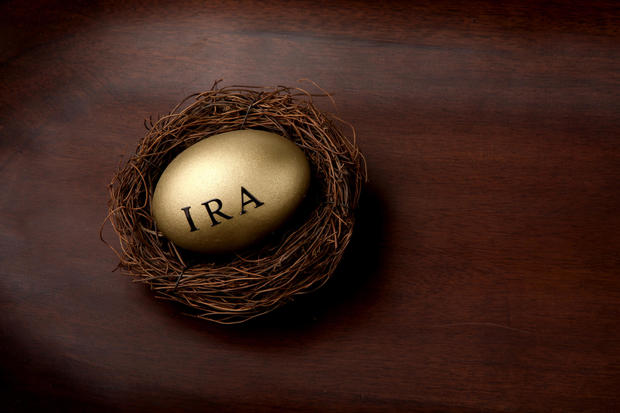We may receive commissions from some links to products on this page. Promotions are subject to availability and retailer terms.

Gold can be a valuable part of any investment portfolio. It maintains its value more reliably than riskier investments like stocks, making it a great hedge against inflation. It also helps you diversify your investments, balancing risk versus reward in your portfolio. In times of rising inflation and economic uncertainty, gold is one way you can protect your money.
One of the ways you can invest in gold is with a gold IRA. An IRA is a retirement account that comes with tax advantages. While a regular IRA allows you to hold stocks, bonds and mutual funds, a gold IRA holds physical gold. It enables you to add gold to your portfolio while enjoying the tax benefits IRAs provide.
IRAs come in two forms: traditional and Roth. Which type of gold IRA is best for you? That's what we'll explore in this article.
Start exploring your gold investment options by requesting a free information kit.
Similarities between traditional and Roth gold IRAs
There are some similarities between traditional and Roth gold IRAs:
- Both provide tax benefits as an incentive to save for your retirement.
- Both have the same contribution limit (for the tax year 2023, that's $6,500 or $7,500 for those ages 50 or older).
- Neither has an age limit on contributions.
- Contributions to either are eligible for the Saver's Credit.
Differences between traditional and Roth gold IRAs
While they have some things in common, traditional and Roth gold IRAs have several key differences. Here are the big ones:
- Eligibility: Anyone with earned income may contribute to a traditional gold IRA. To be eligible for a Roth gold IRA, your income must be below a certain limit (for the tax year 2023, that's $153,000 for individuals and $228,00 for married couples filing jointly).
- How they're funded: Traditional gold IRAs are funded with pre-tax dollars. That means you don't pay taxes on the money you contribute. Roth gold IRAs are funded with after-tax dollars, meaning you do pay taxes on the money you contribute.
- Tax-deductibility of contributions: Contributions to a traditional gold IRA are tax-deductible. Contributions to a Roth gold IRA are not.
- Taxes on withdrawals: Withdrawals from a traditional gold IRA are taxed. Withdrawals from a Roth gold IRA are not.
- Early withdrawal rules: If you withdraw funds from a traditional gold IRA before you reach age 59 ½, you incur taxes and a 10% penalty. Roth gold IRAs allow withdrawals at any time tax- and penalty-free.
- Required minimum distributions (RMDs): With a traditional gold IRA, you must begin taking distributions when you reach age 73. Roth IRAs have no such requirement.
The bottom line
Which type of gold IRA you open depends on several things.
If you expect to have a lower income in retirement, a traditional IRA may be your best bet because you're taxed when you withdraw the funds. Since your income will be lower in retirement, your funds will be taxed at a lower rate than they would be when you contributed them.
If you expect to have a higher income in retirement, a Roth IRA may be better because you're taxed when you contribute. Since your income will be lower then, your funds with be taxed at a lower rate than they would be in retirement.
That said, there are other factors to consider, such as early withdrawal penalties and required minimum distributions. Consult a financial for customized advice for your situation. Learn more about investing in gold IRAs here.
Thanks for reading CBS NEWS.
Create your free account or log in
for more features.


